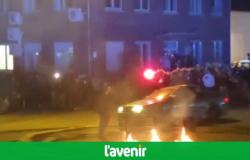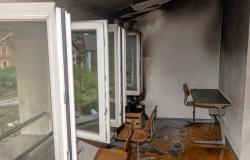The flames that threatened Jerusalem and its surroundings were finally contained, allowing the reopening of the roads and the gradual return to normal.
After 48 hours of fierce struggle, the Israeli rescue services announced the stabilization of fires that had ignited the forests at the gates of the capital. The firefighters, supported by air and military reinforcements, however continue to monitor the last hot spots, fearing a resumption of flames under the effect of persistent winds.
Nearly 13,000 hectares of vegetation have been reduced to ashes, making this episode one of the most destructive of the last decade. The authorities had proceeded with the preventive evacuation of thousands of residents in the risk areas, while the celebrations of the independence day had been canceled due to the danger.
On the ground, the intervention teams benefited from the unexpected help of residents, as in Abu Ghosh, where residents improvised human chains to feed the watering pipes. “We had to act quickly to protect our houses,” said one of them.
The government spoke of the criminal track, saying that several suspects had been arrested. At the same time, international reinforcements, including water bombers from Europe, have been deployed to strengthen local means.
Despite the return to a quieter situation, questions remain on the preparation of emergency services in the face of these extreme, more and more frequent phenomena. “We knew that the weather conditions were conducive, but the means were not up to par,” regretted an evacuated resident.
The authorities remain on alert, aware that the fire season could only be beginning.







